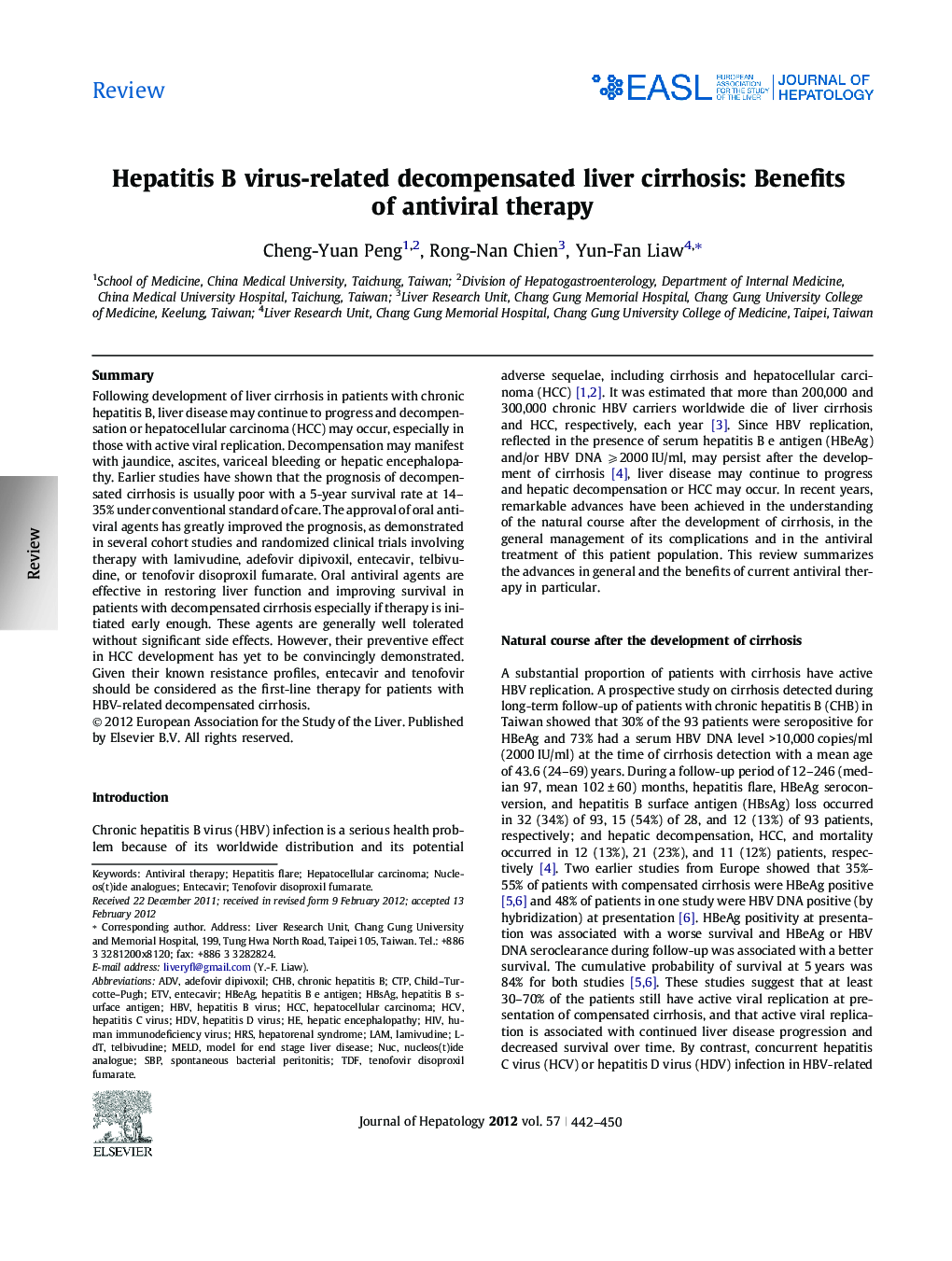| کد مقاله | کد نشریه | سال انتشار | مقاله انگلیسی | نسخه تمام متن |
|---|---|---|---|---|
| 6106680 | 1211164 | 2012 | 9 صفحه PDF | دانلود رایگان |

SummaryFollowing development of liver cirrhosis in patients with chronic hepatitis B, liver disease may continue to progress and decompensation or hepatocellular carcinoma (HCC) may occur, especially in those with active viral replication. Decompensation may manifest with jaundice, ascites, variceal bleeding or hepatic encephalopathy. Earlier studies have shown that the prognosis of decompensated cirrhosis is usually poor with a 5-year survival rate at 14-35% under conventional standard of care. The approval of oral antiviral agents has greatly improved the prognosis, as demonstrated in several cohort studies and randomized clinical trials involving therapy with lamivudine, adefovir dipivoxil, entecavir, telbivudine, or tenofovir disoproxil fumarate. Oral antiviral agents are effective in restoring liver function and improving survival in patients with decompensated cirrhosis especially if therapy is initiated early enough. These agents are generally well tolerated without significant side effects. However, their preventive effect in HCC development has yet to be convincingly demonstrated. Given their known resistance profiles, entecavir and tenofovir should be considered as the first-line therapy for patients with HBV-related decompensated cirrhosis.
Journal: Journal of Hepatology - Volume 57, Issue 2, August 2012, Pages 442-450